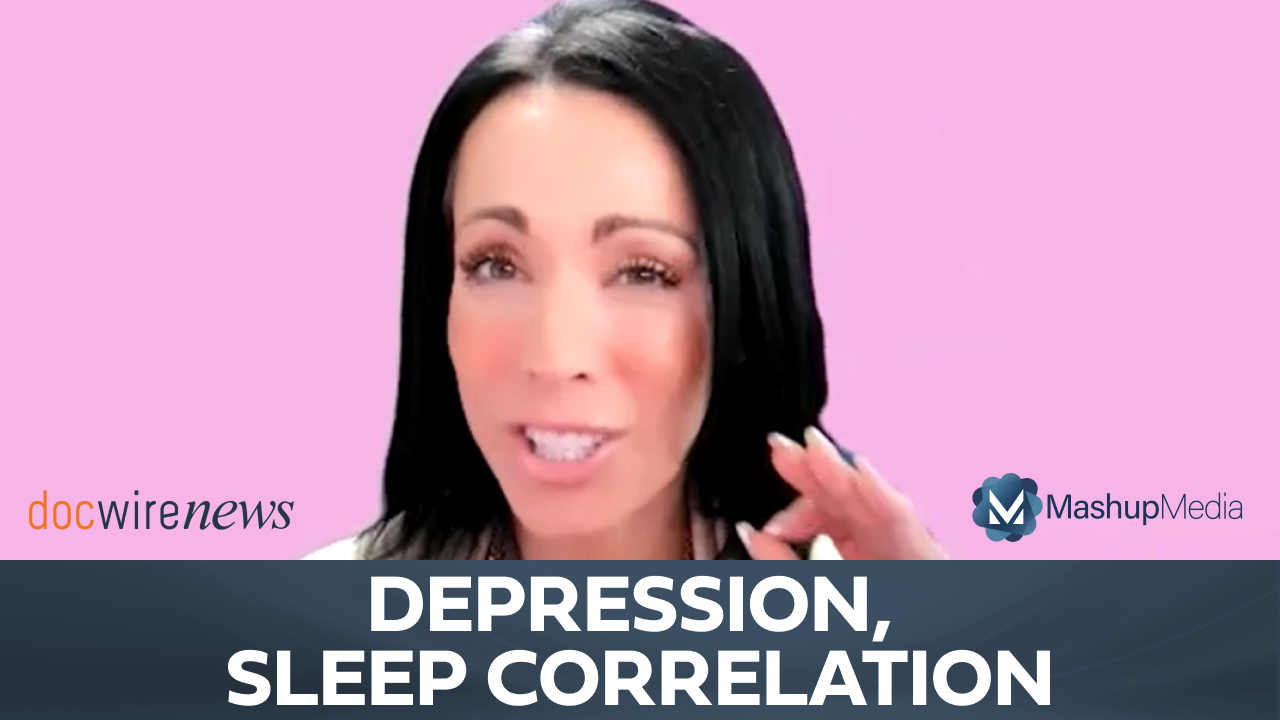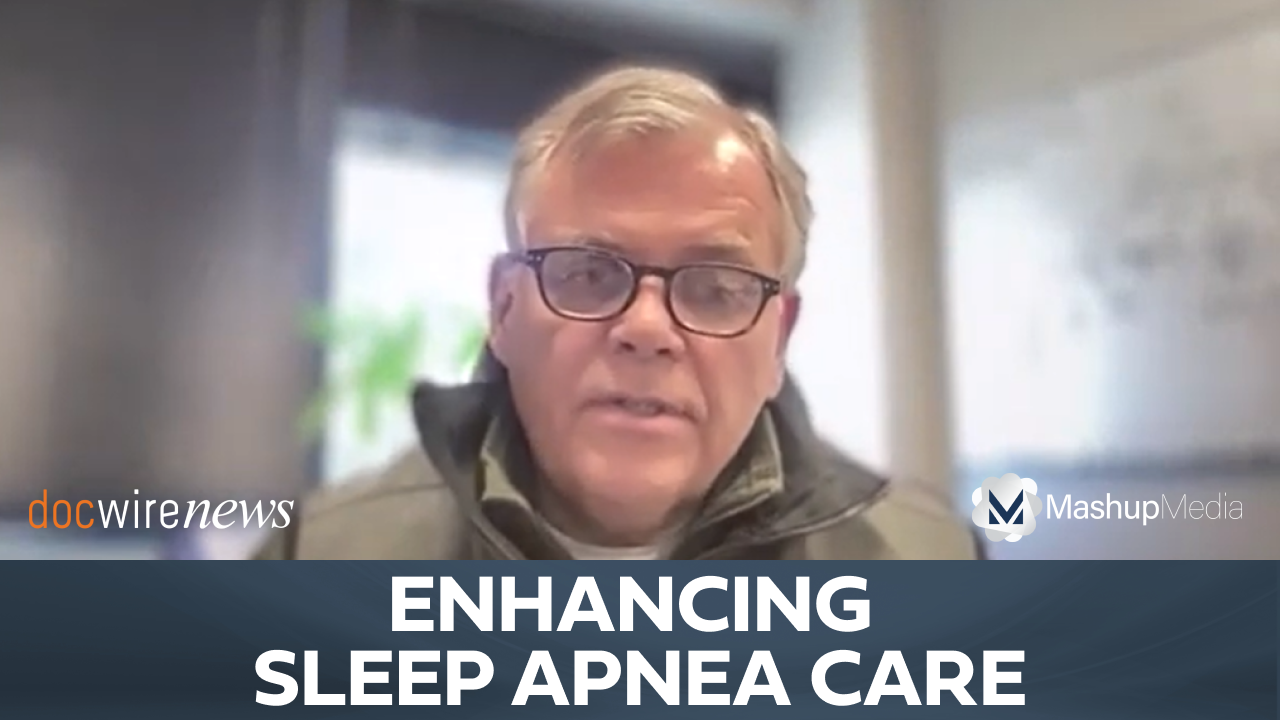Dr. Anne Marie Morse on the Connection Between Diet, Sleep
By Anne Marie Morse, DO, Rob Dillard - Last Updated: November 1, 2024Diet significantly affects sleep quality and duration. In this interview, Dr. Anne Marie Morse expertly breaks down why that is, and explains why both food timing and quality have such a profound impact on how well we sleep, and how that ties to overall health.
Dr. Morse on the Connection Between Diet and Sleep Health.
So in an age where everyone is constantly looking at the things that they’re eating, because we’re seeing a national struggle with the ability to maintain optimal body weight, we sometimes wonder is there a relationship with what we’re eating and how we’re sleeping? Well, if you’ve ever wondered that, the answer is 100% a resounding yes. And so this is something that is even more than just what I’m eating. It is the quality, the content, and the timing of foods that can have a very, very significant impact on my sleep as well as my overall health. Now, in addition to that, that direction is not just unilateral. It actually is a bidirectional effect. So my sleep quality, quantity, duration, time, it can also impact the foods that I’m eating. So let’s unpack first diet and what it’s impacting in regards to sleep. So when you’re looking at the quality of food, there is evidence to demonstrate higher caloric foods that are of poor quality are going to not only have an impact on our total sleep times, but it also may actually affect our ultradian rhythms or how we’re cycling through the night.
There has been some studies that have demonstrated that higher caloric, higher fat foods may actually cause us to spend more time in REM sleep. This would overlap with some studies that have even looked at the types of foods that we’re eating. If they’re more spicy or they’re that deep-fried, that people were more likely to provide subjective complaints of things like nightmare disorder. Well, that’s not by coincidence. That really is matching up. REM is our period. We’re going to have very vivid dreaming, and so if I’m making it spicy during the day, well, I guess I’m going to make it spicy at night as well. And maybe that may end up fragmenting my sleep. So potentially it’s just the heartburn from waking me up and causing me to have reflux, or it might be the vivid dreams of those nachos coming to get me as a second attack.
Now, outside of quality of food is also thinking about the timing of food. And so interestingly, timing of food can impact our ability to fall and stay asleep. And so yes, I’m going to introduce circadian rhythms again because circadian rhythm impacts everything we do. And so there is evidence to demonstrate that timing of our food can also influence our ability to fall asleep and stay asleep. The inverse is also true. I can actually use timing of food to help me re-regulate my circadian rhythm. What do I need? If I’m planning on traveling multiple time zones, I actually can utilize the timing of meals at the destination I’m going to as a strategy to reduce jet lag. That’s right. I can utilize me eating at the timeframe of where I’m going and start doing that the day of or the day before I leave in order for me to be able to adjust more easily.
In other words, strategies like intermittent fasting may potentially help in being able to be able to adapt to a new time zone easier. This also can be a strategy that sometimes can be evaluated for individuals who, I’m not changing time zones, but my circadian rhythm isn’t matching what I want it to be. And so these are also the reason why when we’re looking at individuals who have things like shift work disorder and are having irregular time schedules, but they sometimes struggle with those feeding. I can remember as a residence when I was doing those night floats of definitely always reaching for extra food in the middle of the night, many times thinking that it may help me to be more awake, but also now reflecting on physiologically, I probably was giving wrong signaling to make myself eat a little bit more than what I would like to.
Now, what’s fascinating is that I’ve had some opportunity to even further exploration in regards to this topic. Two years ago now, I gave a presentation at the American Academy of Sleep Medicine as a part of the pediatric postgraduate course about the circadian rhythm in the microbiome and obesity and obstructive sleep apnea. And yes, was it a lot to unpack? 100%, but I managed to do it in 45 minutes. Here we’re going to cover it in about one to two. With that stated, one of the things that we have also identified is that when we’re talking about things like teenagers and some of the patterns that they have, we already recognize that they’re more prone to having things like the late sleep phase. What we also identify is that when they do have the late sleep phase and they have increased caloric intake, that they are also going to be more susceptible to having more fragmented sleep and also further destruction of the microbiome.
How does that play into other risk factors or having further disruption of the microbiome? One of the things that it can put you at risk for are things like obstructive sleep apnea. As a neurologist, when I was training and I was told that the microbiome may have some impact on the brain, I said, there’s no way some bugs in my stomach is telling my brain what to do. Well, I’m telling you today that I did a complete 180 and yes, those bugs in my belly are definitely telling my brain what to do. And this is the reason why we may see more severe chronic intermittent hypoxia as well as sleep fragmentation in individuals who are obese with obstructive sleep apnea and have circadian rhythm disorders.
Also recognizing there’s a circadian distribution to the expression of our microbiome. So with all of that stated, food matters. You are what you eat is definitely a saying that we need to take for not for granted, but really think about what the impact is. The quality, the timing, the content of our meals are things that you can utilize as a tool for not only feeling better in a day, but also getting your best night’s sleep.







 © 2025 Mashup Media, LLC, a Formedics Property. All Rights Reserved.
© 2025 Mashup Media, LLC, a Formedics Property. All Rights Reserved.